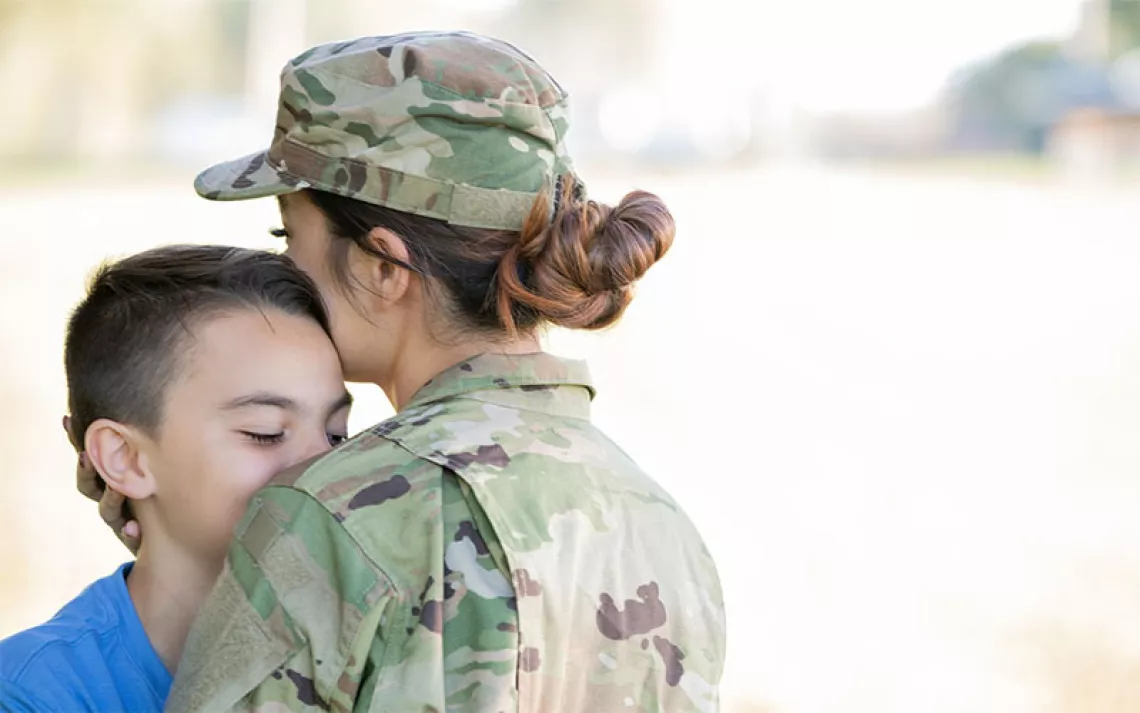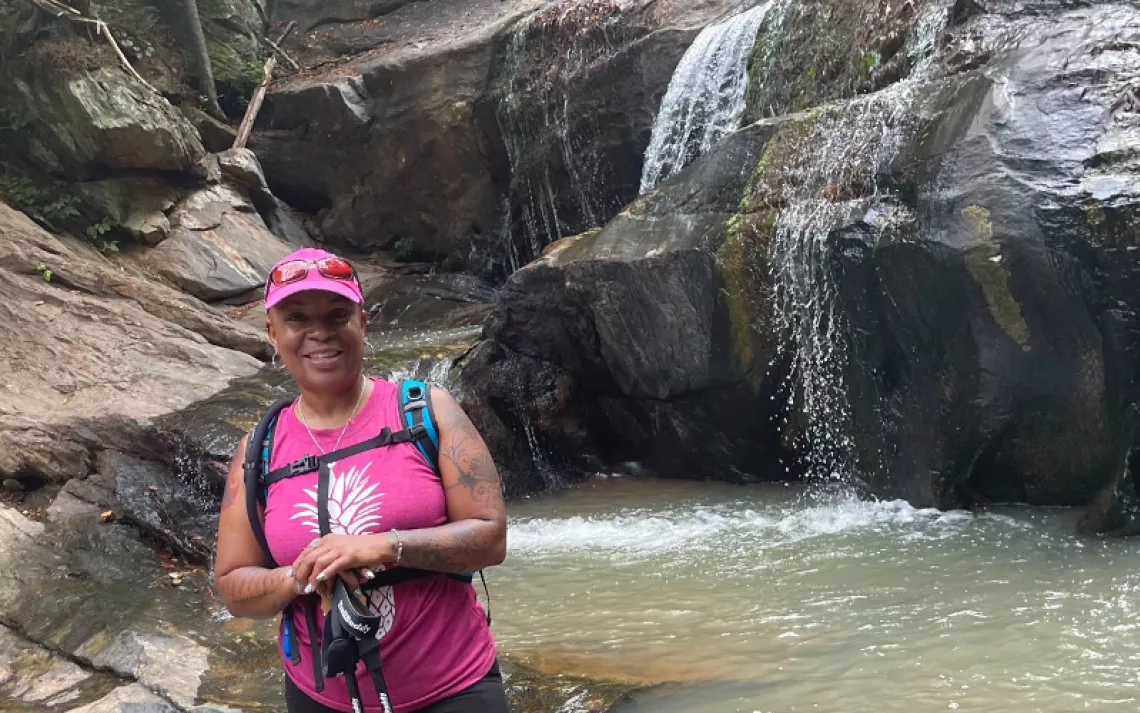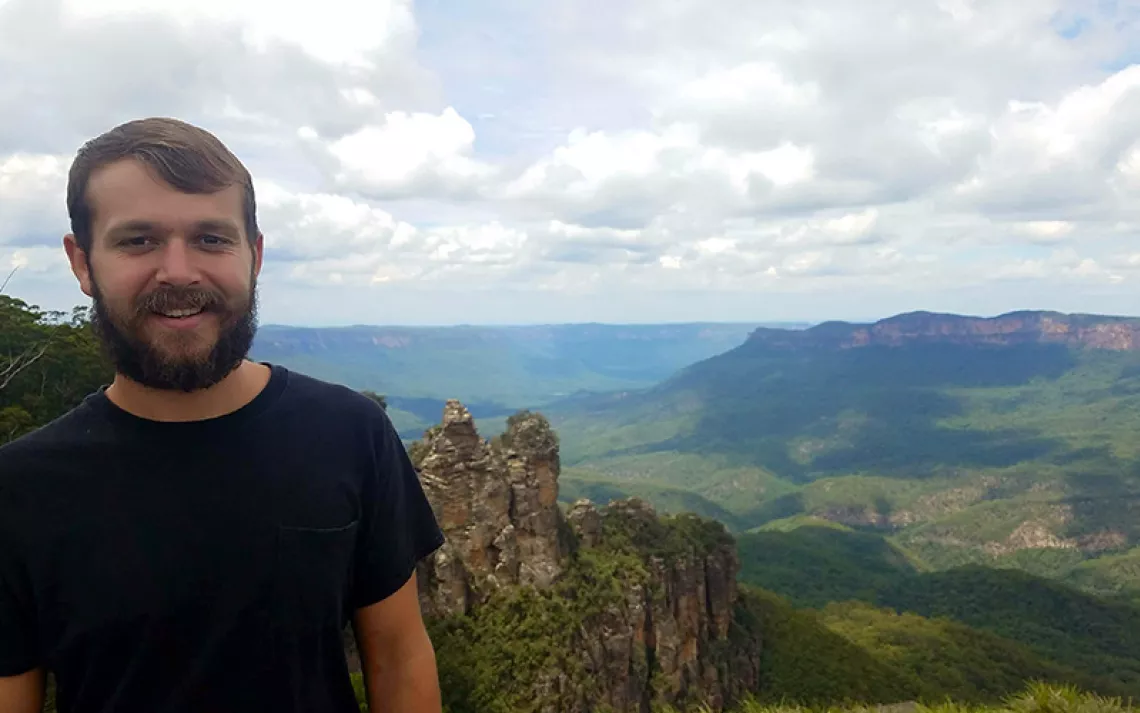What Veterans Day Means to Me
How one US Navy vet found nature in Kuwait—and harnessed it to heal
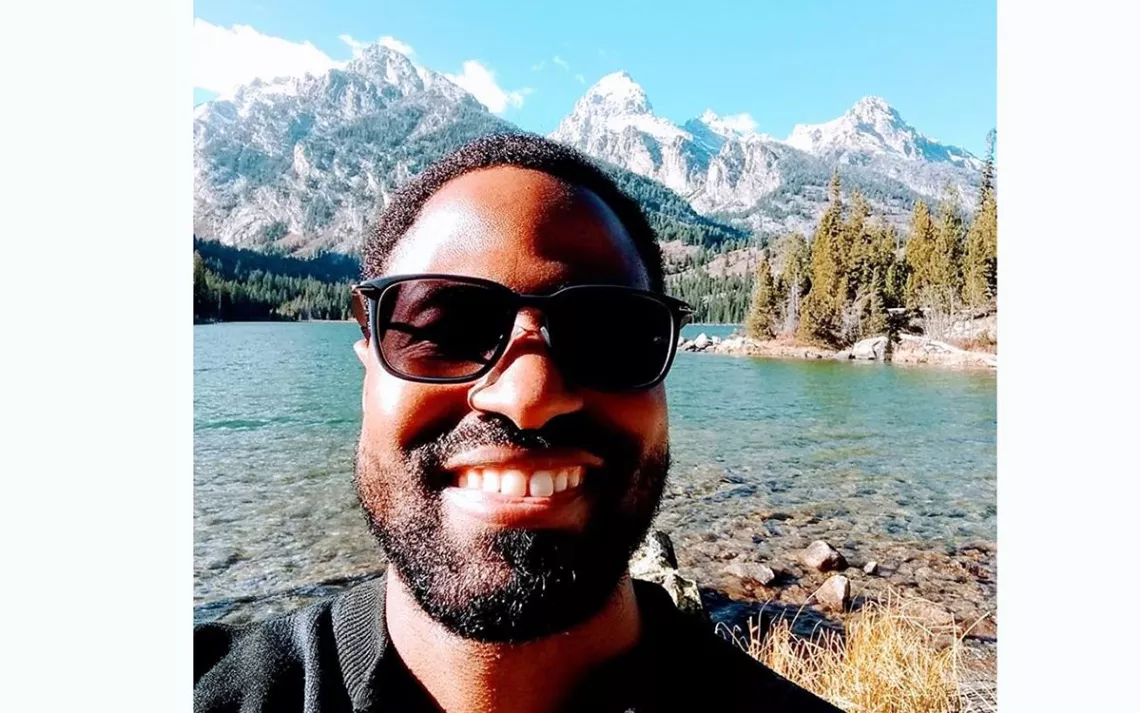
Photos courtesy of Lornett Vestal
It was a muggy, warm June day in the Talamanca Mountains of Costa Rica. The year was 2005, and Christy Kruse, my newest friend, had spent the past several days at our host family’s home trying to convince me to go whitewater rafting. I’d never done anything like that before. Yet there I stood on the Pacuare River, alongside several fellow volunteers from Habitat for Humanity. I was 21 years old and freshly honorably discharged from the US Navy. Those bright blue and red rubber rafts were about to take me on an adventure of a lifetime.
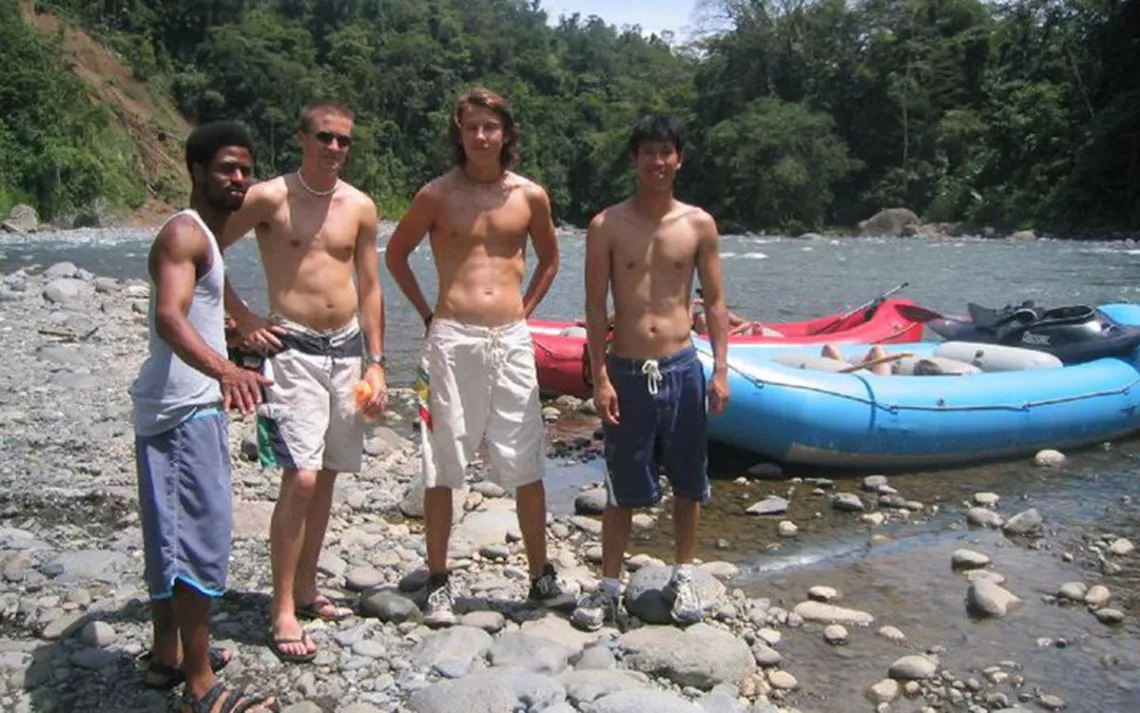
When I joined the navy in June 2001, I was considered a “city kid” from Chicago. Until that point, my outdoor experience had consisted of boyhood adventures playing in the woods, digging up worms in the dirt, riding my Big Wheel, and catching grasshoppers during humid Midwestern summers. I got stationed in San Diego, which proved to be a huge source of culture shock. Unlike Chicago, neighborhoods in San Diego weren’t über-segregated by race. Outdoor malls were a big deal, and instead of a subway train, they had a trolley. It was the first time I’d ever seen a palm tree in person—I remember running up to one on base and touching it.
My shipmates thought I was a little nutty, but it was all a new experience for me. Some of my fellow sailors were city slickers from New York and Los Angeles; others came from small towns or very rural communities. Other sailors came from countries like the Philippines, Gaum, and Haiti. I’d say 70 percent of the remainder of my fellow sailors came from the state of Texas. True story! During my time in service, I learned to work with people from various racial, social, and religious backgrounds. After all, we were men and women working together to achieve a common goal.
Our servicemen and women reflect every aspect of what makes America one of the world’s most diverse and multicultural societies on Earth. The men and women in uniform don’t decide to go to war, or with whom to go to war—they follow the orders of the oath we all swore to uphold. But the realities of war have left scars on the countries we’ve fought and on the humans who’ve fought in our wars. Homelands have been devastated, guns fired, bombs dropped, and lives lost. Just like the countries we’ve fought in, we are never the same when we return home. Deployment changes you; at least, it changed me. You learn to live on edge, knowing that disaster could strike at any moment in hostile waters and lands. Little did I know that even during my deployment, I was launching myself on the path of healing from these scars—I was connecting with nature.
Growing up on Chicago’s South Side, I had never seen the ocean. Despite its beauty, Lake Michigan can never quite compare to oceans’ majestic power. I’ve now been lucky to sail the Pacific, Southern, and Indian Oceans, as well as the Mediterranean Sea and the Persian Gulf. On my first deployment to Kuwait during Operation Iraqi Freedom in 2003, I witnessed a lunar eclipse while floating atop the waves of the Indian Ocean. Even amid modern warfare, I stood in awe of nature’s beauty. On stressful days at sea out aboard the USS Cleveland LPD-7, I would come out to the flight deck when operations were down. I would stand at the ship’s bow and watch dolphins swim alongside the forecastle. I bore witness to the magnificence of bioluminescence, thanks to thousands of jellyfish lighting up the night sea in the Persian Gulf. The sight was only matched by the beauty of stars in a clear night’s sky.
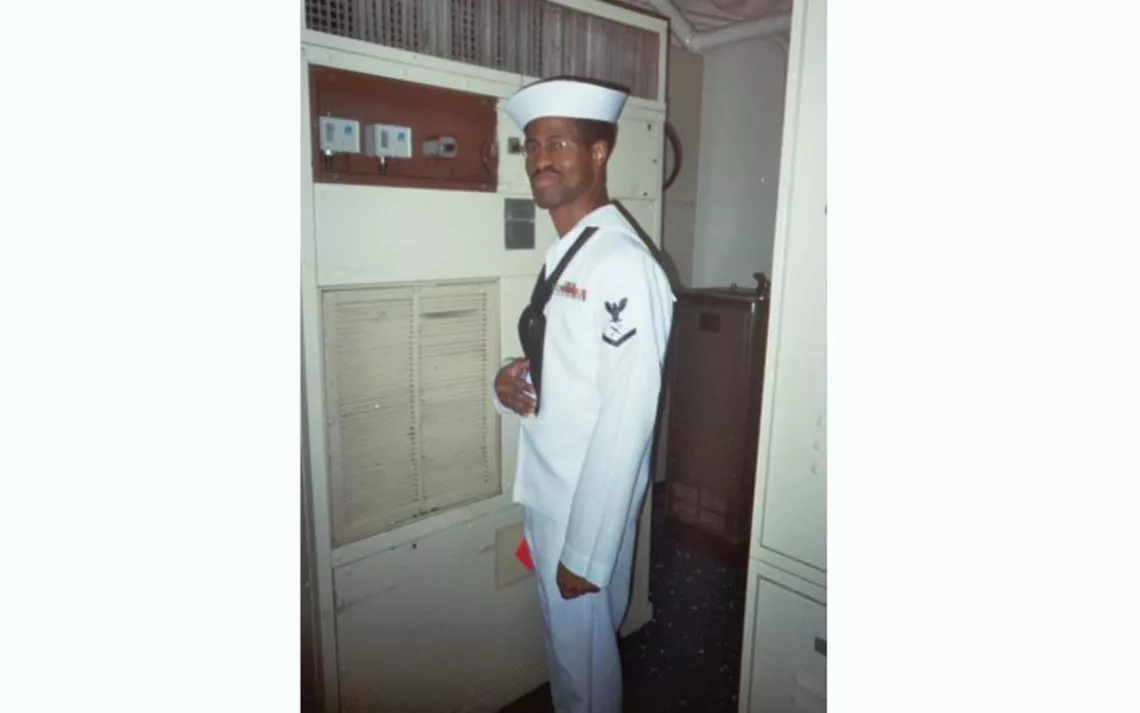
While serving from 2001 to 2005, I developed a taste for travel and a hankering to see more of the world. Which is part of why, six months before getting out, I volunteered to spend a summer in beautiful Costa Rica, building homes for those less fortunate. There I stood on that riverbed in Costa Rica, preparing to have my first whitewater adventure.
The glory of the waves, the sound of the water rushing downstream, and the backdrop of the Costa Rican rainforest were well worth my taking this leap of faith—entering the world of whitewater rafting. During my maiden rafting adventure, we hit a Class 5 rapid (I had no idea what this meant at that time) on the last section of the river. Our raft capsized. It all happened so fast; one minute, we were paddling along, and in the next minute, we were out of the raft and being washed downstream. Our guide, Phil—a burly gentleman with an intense sunburn who spoke fluent Spanish with a strong southern Georgia accent—pulled me back in. That’s when my naval training kicked into overdrive.
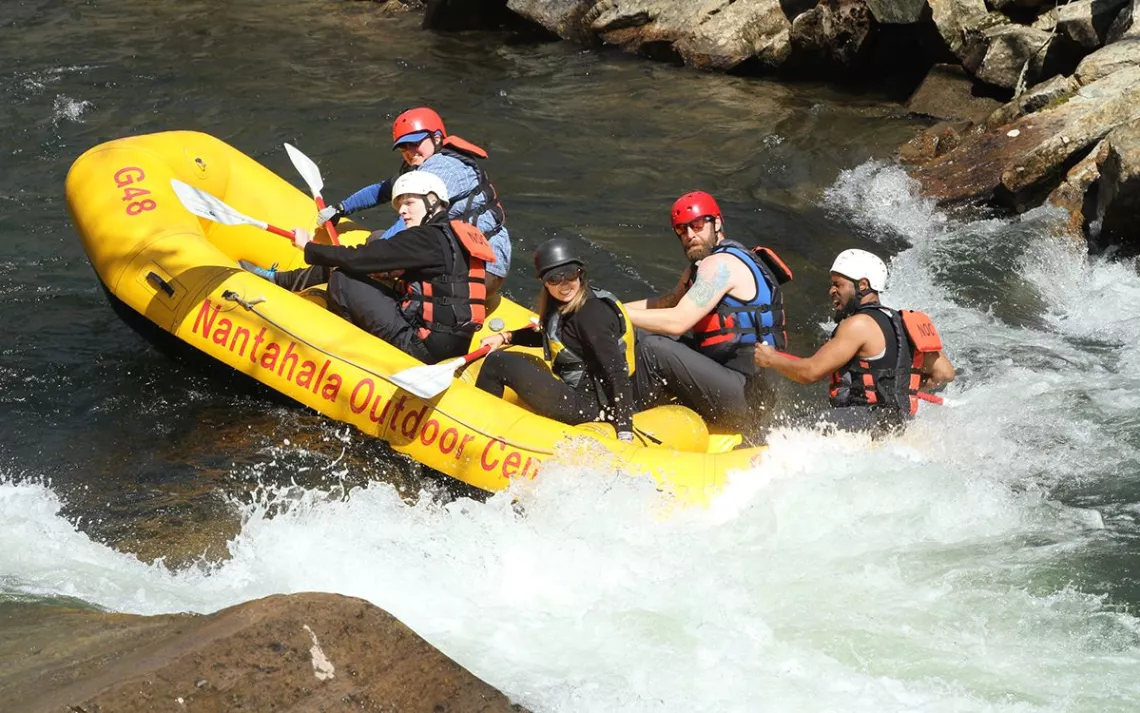
With no prior experience doing a whitewater rescue, or knowledge of the correct way to pull a swimmer back on board, I dragged the rest of my crewmates back onto the raft. I figured it out on the fly, which is what time in service prepares you to do—to expect the unexpected. Soon enough, everybody was back in the raft, but in panic mode. Phil was busy checking us out and ensuring we were all good. Once everything calmed down, the woman I’d pulled in last, my friend Christy, asked where all the blood was coming from. Well, it turned out that blood was spewing from me.
When we got dumped into the river, I’d hit my head, hard, on a rock. Who knew that a cheap plastic half-cut yellow helmet would save my life that day? However, the impact of the rock had also caused that helmet to slice open my left ear.
Luckily, we weren’t far from our take-out point. On our last stretch of river, a young boy jumped from an old train bridge into the river (it was something like a 20-foot drop!) and swam up. I helped him pull our raft out of the river. Back on land, the guides patched me up. An aspirin and a Corona beer took care of the rest. (I would advise readers not to be like me in that moment, but keep in mind, I was a 21-year-old fresh out of the navy.) I still proudly wear a scar on my left ear: my badge from that eventful day on the Pacuare River. Like my scar, those memories will last a lifetime. I didn’t realize at the time that it would mark my first of countless whitewater adventures.
Needless to say, my time in nature didn’t end after my trip to Costa Rica. Back home in the Midwest, I found personal redemption in the backyards of Chicago, and also via sweat lodges in the woods of northern Illinois. Indigenous Americans traditionally created these domed enclosures out of willow branches and cloth, wherein they heated rocks for hours on fires, and performed purifying and cleansing rituals—complete with chanting, song, and storytelling—for members of their community.
The outdoor time and those ceremonies helped me finally begin to deal with many years’ worth of insomnia, PTSD, and depression, which manifested as early as my first deployment. Those sleepless nights and vivid nightmares I experienced while overseas came back with a vengeance in 2006, during my first year of college. In my twenties, it all came to a head: I hadn’t processed my time in service, nor my experience as a former foster child growing up in Chicago in the 1980s and '90s. The surge of those repressed and not-so-repressed memories made me realize I had never honestly addressed the challenges and trauma that life had dealt me. I sought out help from mental health professionals, and to this day, I still utilize my local Vet Center—community-based counseling centers that provide veterans and their families with a wide range of social and psychological services.
I owe my life to a fellow vet who helped me in a time of need, as well as to my good friend Ulysses, a fellow social worker who brought me to the sweat lodge’s sacred space. Along with the healing I experienced there, I was lucky enough to have an apartment next to the Chicago Park District. I spent much time staring out at Lake Michigan while I daydreamed or read a book. This all aided in my readjustment to the civilian world. And the experiences left me with a passion for helping others like myself.
Upon entering graduate school for social work, I learned that I was far from alone—many individuals who served in the armed forces suffer from invisible wounds like depression, anxiety, insomnia, and PTSD. Their invisible wounds developed on the seven seas, or in the deserts of Iraq or Afghanistan. Many veterans experience difficulty adjusting to civilian life after leaving the service. And many spend years thereafter wrestling with invisible wounds caused by PTSD, moral injury, or traumatic brain injury.
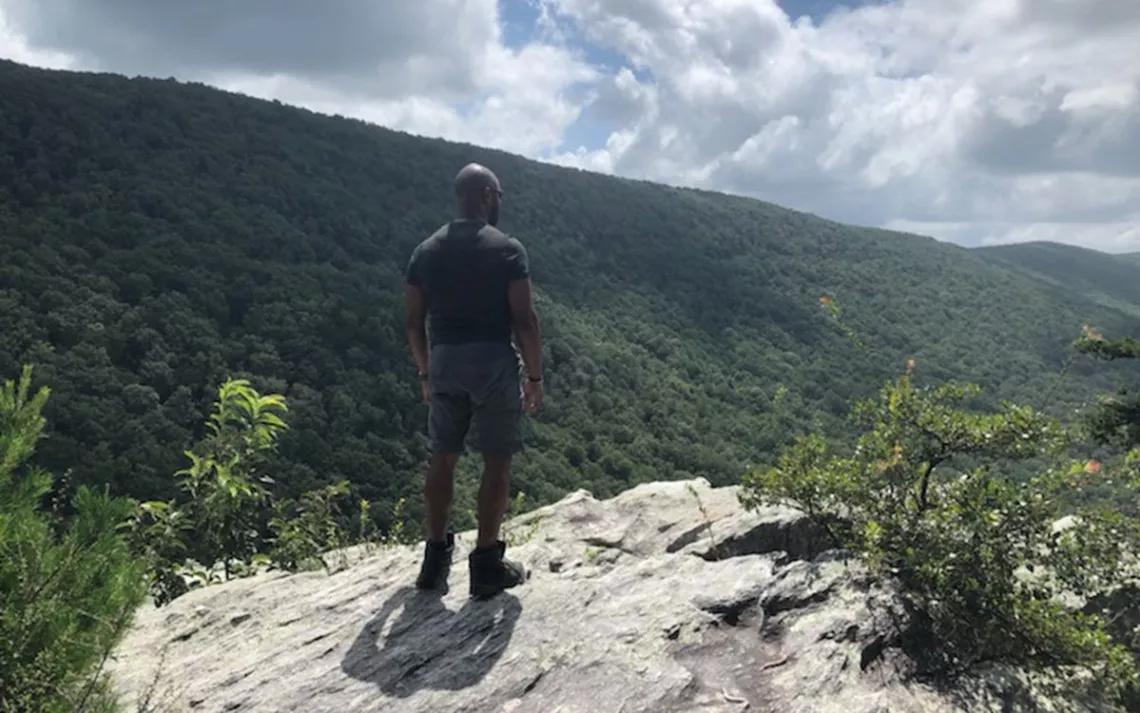
On the flipside, many men and women adjust to life after military service just fine. Everyone’s journey is different, and this is just my story. I now work to help my fellow veteran and military brethren find redemption in the beauty of nature. I tell people that in life, we all struggle mentally, whether you’re a service member or not. Because after all, life can be stressful and challenging. I owe my own ability to manage my mental health in a healthy and productive manner to counseling, a strong support network, and time spent in the great outdoors.
Just this year, a UC Berkeley long-term study, conducted in partnership with Sierra Club Outdoors, proved that time spent outdoors in nature can indeed help alleviate the ill effects of PTSD. Luckily, many programs serve to connect the military and their families with the great outdoors: Sierra Club Military Outdoors, Team Rubicon, Team River Runner, Team Red, White, & Blue, and The Mission Continues. All these programs share a common goal of helping service members and their families reconnect with each other, their communities, and nature. I hope my brothers and sisters in arms can equally find peace and solace through nature, just as I have.
 The Magazine of The Sierra Club
The Magazine of The Sierra Club

